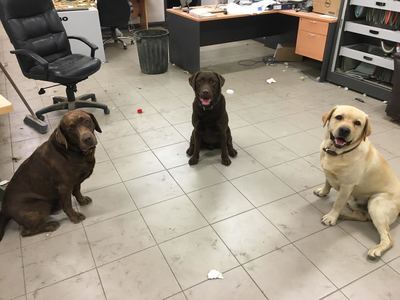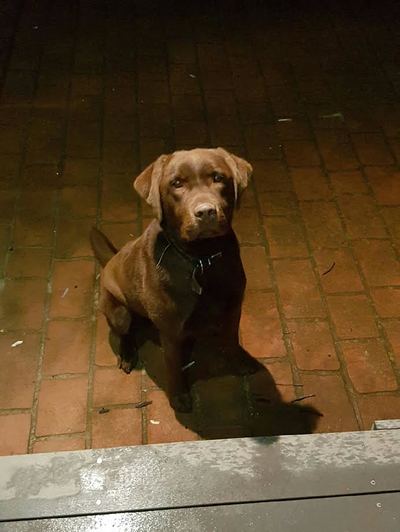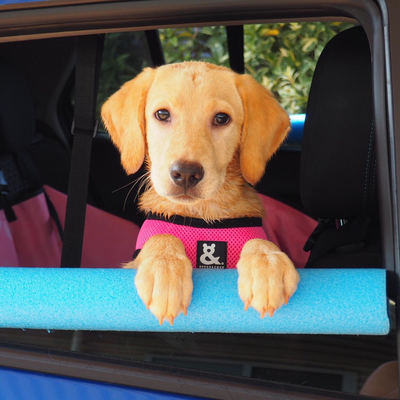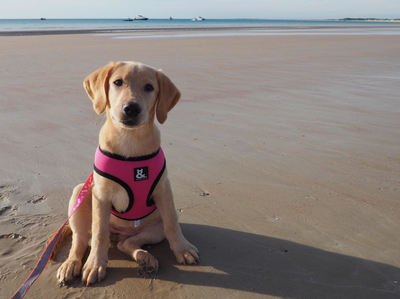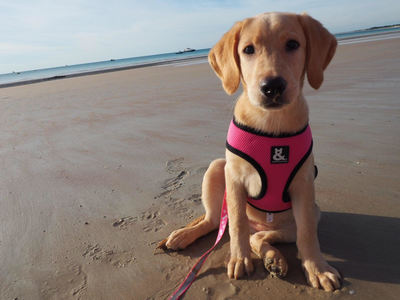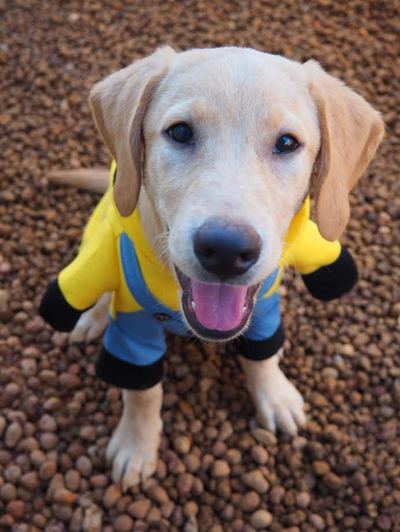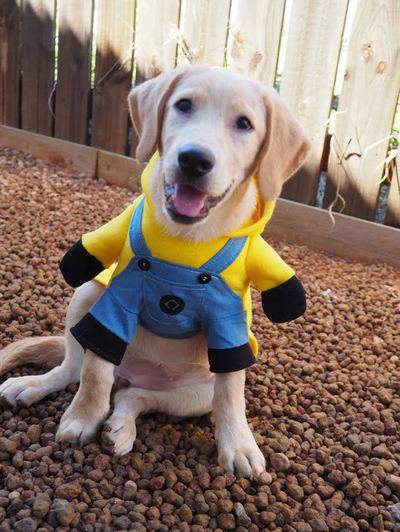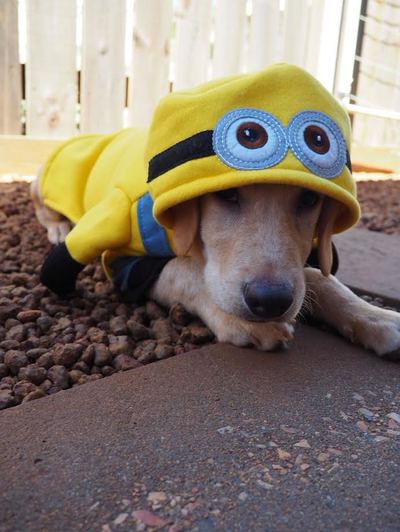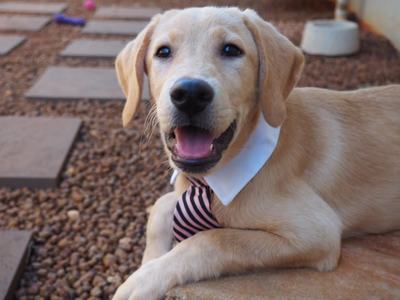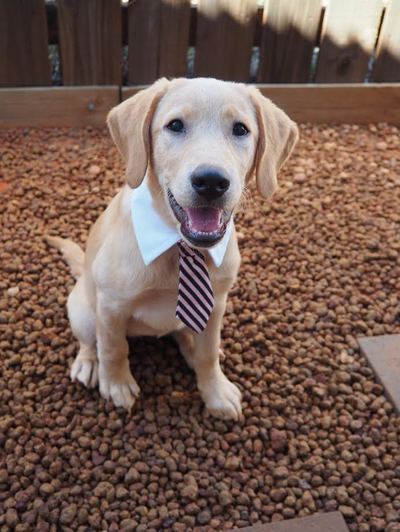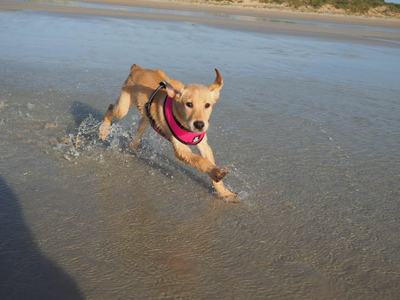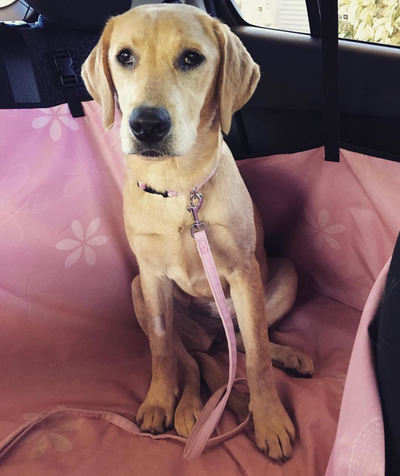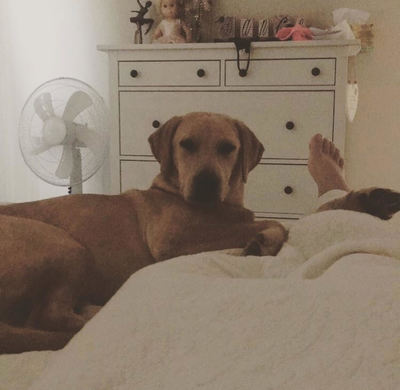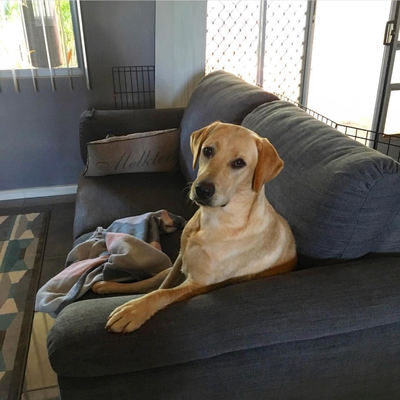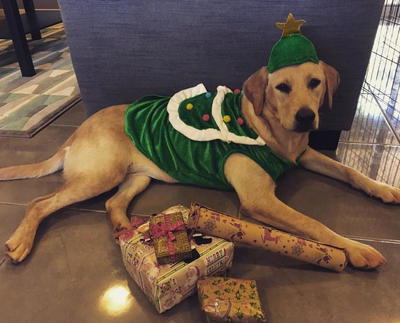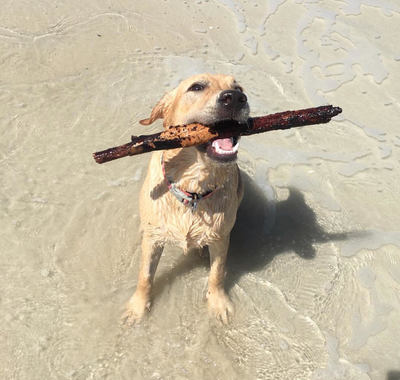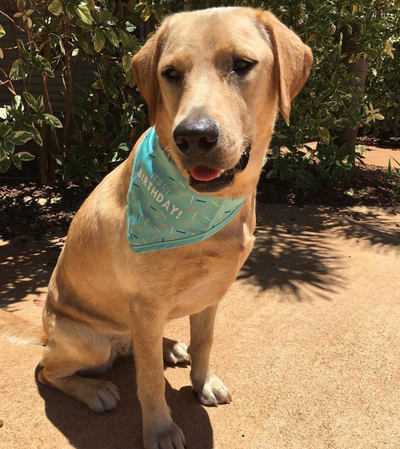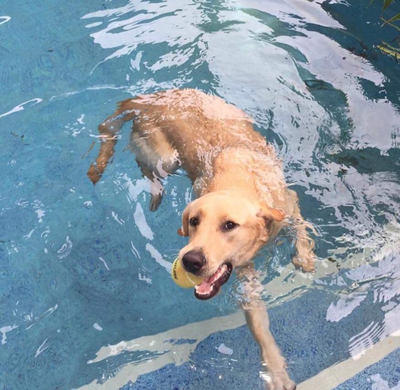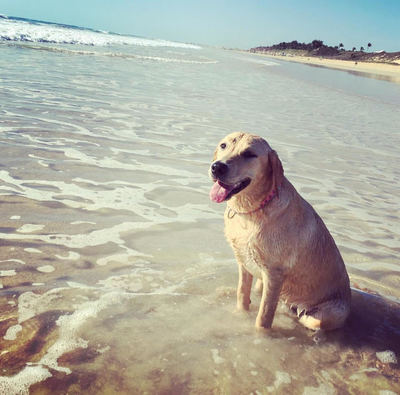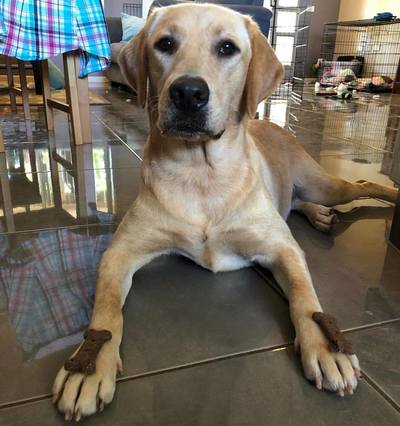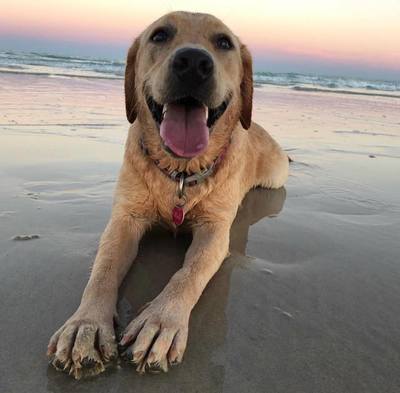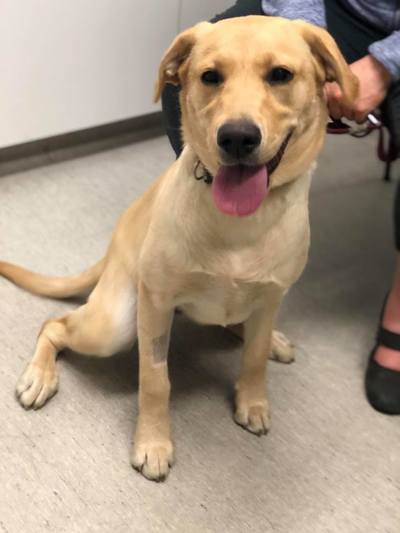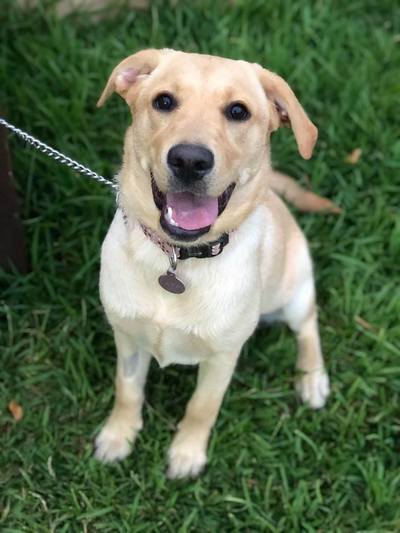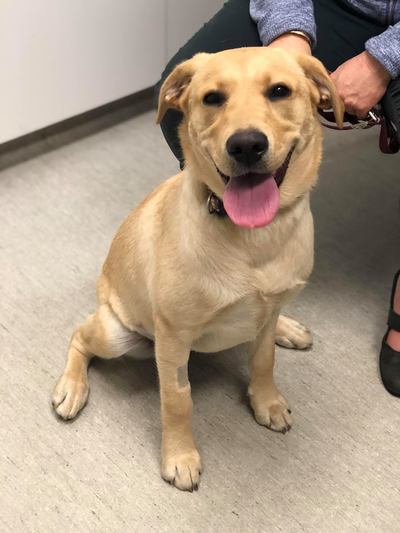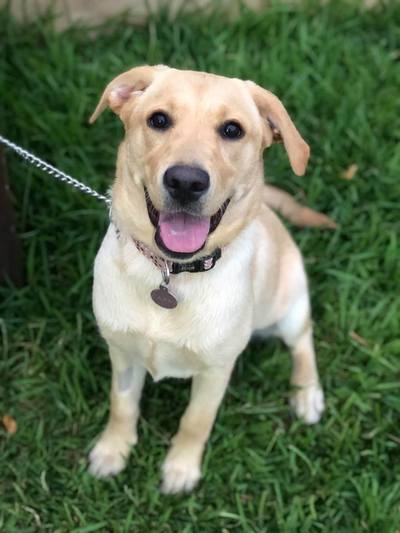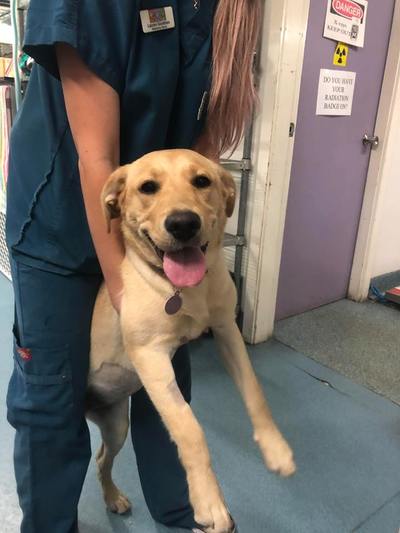Labrador Retriever
 Nala, taking her rightful place at pride rock @theadventuresof.nala on Instagram
Nala, taking her rightful place at pride rock @theadventuresof.nala on Instagram
Breed: Labrador Retriever
Other names: Lab, Labrador
Temperament: loving, intelligent, playful, active
Size: 25kg - 35kg
Lifespan: 10 - 12 years
Maintenance: medium
Recommended for: families, children, couples, singles
Other names: Lab, Labrador
Temperament: loving, intelligent, playful, active
Size: 25kg - 35kg
Lifespan: 10 - 12 years
Maintenance: medium
Recommended for: families, children, couples, singles
History of the Labrador
The Labrador Retriever is a strong and hardy dog - it had to be. The Labrador was a working dog, and played a vital role to fisherman - especially in the cooler weather. The Labradors strength, aided in pulling fishing nets through waters, from boats to shore; pulling heavy loads of firewood, fish and supplies; and endurance to withstand cold weathers, and icy and slippery conditions back on land. The coat of this dog was also made for such weathers, the short and dense coat of the Labrador with waterproof qualities.
Initially from the Newfoundland province of Canada, there was already a breed of dog that had been come to known, as the Newfoundland. Referred to as the Lesser Newfoundland, and St Johns Dogs, for some time - this dog eventually became known as the Labrador (which was a peninsular). The Labrador developed a following in Europe, in particular in North Britain, where they were used as retrievers and gun dogs.
The Labrador, to this day, still carries the qualities of the breed which were required of them centuries ago. Labradors make fantastic work dogs, and assistance dogs - though are also suited to family life. The Lab will enjoy outdoor activities, and being involved in family activities. Trips to the park will be enjoyed, and Labs are generally friendly with people, dogs and other pets - early socialisation and training is key.
Personality, characteristics and temperament
Labradors make devoted family companions, are fun loving and affectionate - with a friendly demeanour. The Labrador is an adaptable dog, that adjusts well to city and country living. Regular walks will be a must for Labs in smaller living environments, or who lack a decent size yard. In saying so - given regular walks a Labrador will happily reside indoors - though training is a must! Patient with children, willing to learn and eager to please. The Lab is loyal and though they are good watch dogs, that will bark to inform you of strangers or abnormal activity around the home - they are not one to act out aggressively.
Grooming your Labrador
Labradors are fairly straight forward in terms of grooming, they will not become matted, and do not need clipping or regular brushing - though they will shed (particularly with the change of seasons). Throughout the year though, a brush to remove any loose hair will be plenty. Canine cologne is a good choice for those who have dogs that live both in and outdoors.
Training your Lab
Being a working dog, the Labradors are fantastic in terms of training. Start young, calm yet firm training is required, and the Labrador will make an obedient dog for years to come. Generally puppy like for the first 3 years of life, it can take time for Labs to mature. Great potential, a working and assistance dog - this is a breed who strives to impress their handler and is willing to learn. Puppy preschool is recommended as a great early start, your puppy will learn socialisation and basic obedience. This will give you the tools you need to get started.
The Labrador Retriever is a strong and hardy dog - it had to be. The Labrador was a working dog, and played a vital role to fisherman - especially in the cooler weather. The Labradors strength, aided in pulling fishing nets through waters, from boats to shore; pulling heavy loads of firewood, fish and supplies; and endurance to withstand cold weathers, and icy and slippery conditions back on land. The coat of this dog was also made for such weathers, the short and dense coat of the Labrador with waterproof qualities.
Initially from the Newfoundland province of Canada, there was already a breed of dog that had been come to known, as the Newfoundland. Referred to as the Lesser Newfoundland, and St Johns Dogs, for some time - this dog eventually became known as the Labrador (which was a peninsular). The Labrador developed a following in Europe, in particular in North Britain, where they were used as retrievers and gun dogs.
The Labrador, to this day, still carries the qualities of the breed which were required of them centuries ago. Labradors make fantastic work dogs, and assistance dogs - though are also suited to family life. The Lab will enjoy outdoor activities, and being involved in family activities. Trips to the park will be enjoyed, and Labs are generally friendly with people, dogs and other pets - early socialisation and training is key.
Personality, characteristics and temperament
Labradors make devoted family companions, are fun loving and affectionate - with a friendly demeanour. The Labrador is an adaptable dog, that adjusts well to city and country living. Regular walks will be a must for Labs in smaller living environments, or who lack a decent size yard. In saying so - given regular walks a Labrador will happily reside indoors - though training is a must! Patient with children, willing to learn and eager to please. The Lab is loyal and though they are good watch dogs, that will bark to inform you of strangers or abnormal activity around the home - they are not one to act out aggressively.
Grooming your Labrador
Labradors are fairly straight forward in terms of grooming, they will not become matted, and do not need clipping or regular brushing - though they will shed (particularly with the change of seasons). Throughout the year though, a brush to remove any loose hair will be plenty. Canine cologne is a good choice for those who have dogs that live both in and outdoors.
Training your Lab
Being a working dog, the Labradors are fantastic in terms of training. Start young, calm yet firm training is required, and the Labrador will make an obedient dog for years to come. Generally puppy like for the first 3 years of life, it can take time for Labs to mature. Great potential, a working and assistance dog - this is a breed who strives to impress their handler and is willing to learn. Puppy preschool is recommended as a great early start, your puppy will learn socialisation and basic obedience. This will give you the tools you need to get started.
